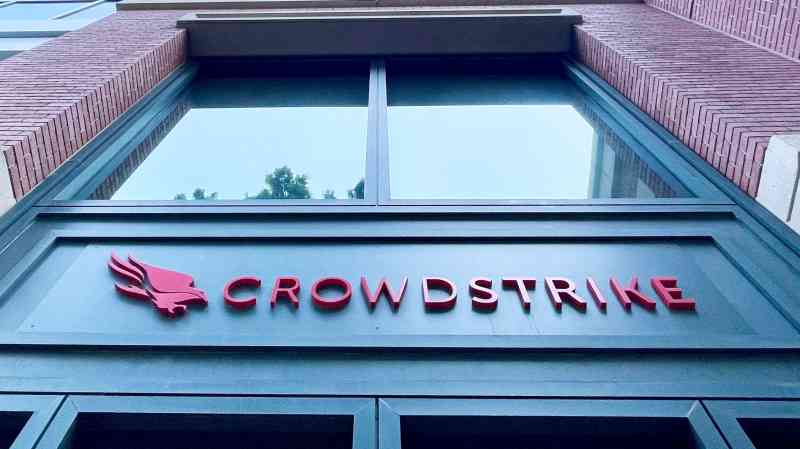Why is Barclays still in the dock?
It was one of the more notorious quotes heard from a senior banker in a court of law. “None of us wants to go to jail here … the food sucks and the sex is worse.”
So quipped Tom Kalaris, the former head of wealth at Barclays and a key figure in the bank’s plans to pay hidden sweeteners to Qatar back in 2008. He and a colleague were discussing the delicate matter of how the payments should be presented and explained.
It was the price of getting two rescue capital injections worth £11.8 billion over the line in depths of the banking crisis in 2008. It was the way Barclays was to avoid the humiliation of rescue by UK taxpayers.
Kalaris was one of three senior Barclays bankers cleared of fraud charges in 2020, when that observation to a colleague in a taped phone call was first given in evidence by the prosecution.
The Serious Fraud Office was heavily criticised when the trio walked free after a trial at the Old Bailey lasting five months and reportedly costing taxpayers £32 million.
But regulators (and no doubt those bruised SFO officials, too) enjoyed a small consolation this week, when the Upper Tribunal rejected Kalaris’s appeal against a City ban imposed by the Financial Conduct Authority in 2022.
The tribunal found that Kalaris’s answers in an interview with the FCA in 2013 were “dishonest” while answers he gave to FCA officials the following year were “false and misleading”. He was, therefore, not “fit and proper” to hold a senior position in an authorised financial firm.
Kalaris is now one of those rare beings — a senior UK banker explicitly judged to be dishonest in a court of law and punished for it. Now 68, Kalaris will not be able to take the reins at Saranac Partners, the St James’s-based wealth management firm he founded after leaving Barclays in 2013.
His face was still to be found on the Saranac website yesterday and he still works there, but his ability to make decisions on behalf of a firm that today manages £5 billion of client money will be severely curtailed. He stepped down as a director in 2016 but is thought to be a major shareholder still after investing £25 million of his own fortune setting it up.
Saranac, named after a lake in upstate New York where Kalaris once lived, has said it is disappointed but accepts the finding, while Kalaris personally has declined to comment.
It’s not an ideal look for a firm dependent on client trust. Saranac is packed with ex-Barclays people. Jerry Del Missier, who quit abruptly after his boss, Bob Diamond, was sacked on the orders of the Bank of England over the Libor rigging scandal in 2012, sits on the board. So does the former Abrdn co-chief executive Martin Gilbert.
A new era of personal responsibility and accountability was meant to be ushered in by the senior managers regime in 2016 after the banking crisis. Figures at the very top of financial services organisations would be held to account and jailed for dishonest conduct and reckless wrongdoing. Scalps would be taken.
It hasn’t quite worked out like that. The jailing of top bankers is still pretty much unheard of in the UK, though Iceland, Ireland and Spain have managed to put a few senior offenders behind bars.
Kalaris was acquitted of all criminal charges. The tribunal findings were focused on the narrow question of whether he misled the FCA and anyway required a much lower burden of proof — a balance of probabilities rather than the “beyond reasonable doubt” hurdle for a criminal conviction.
The affair is still not over. Barclays continues to appeal against a £50 million fine for its “reckless” conduct in failing to disclose to shareholders those £322 million of secret payments to Qatar. Its former chief executive, John Varley, who ran the bank at the time and was acquitted in an earlier fraud trial, was last month ordered by the tribunal to give fresh evidence on the matter.
Justice delayed is justice denied. It cannot be fair to anyone, including shareholders kept in the dark at the time, that the Qatar episode is still not resolved 16 years after the events took place.
• Former Barclays banker ‘misled regulators’
No bank has had quite such a relentlessly bumpy relationship with the authorities as Barclays. Aggressive tax avoidance, dodgy accounting (remember the Protium scandal?) and rate rigging were just starting to be forgotten when along came chief executive Jes Staley and his unfortunate approach to trying to unmask a whistleblower. For that he was fined £642,000 but allowed to keep his job.
As with Kalaris, it was the sin of misleading the regulator that ultimately did for Staley. He was banned from any senior City post and fined £1.8 million in 2023 after allowing the FCA to be misinformed over his very close relationship with the sex offender Jeffrey Epstein. Staley has said he plans to challenge those findings.
The Barclays share price has outperformed the other three traditional UK banks over the past year, perhaps because the current boss “Venkat” Venkatakrishan is at last beginning to convince the City that the confrontational days with regulators are now over.
One concern, however, and possibly an indication of trouble ahead, is that it has slipped sharply in measures for customer service: it dropped from sixth-equal last year to 11th-equal in the new league table from the Competition & Markets Authority this month.
Failings of the past continue to cast a long shadow over Barclays and indeed all banks. It took just moments for Sir Keir Starmer’s message this week that “those with the broadest shoulders” should carry the biggest burden in the forthcoming budget to spark speculation that banks were ripe for a further plucking. Newly fattened up by widening net interest margins and benign borrower defaults, they are an obvious tax target for a chancellor badly hemmed in by past promises not to touch the main rates of tax, VAT and national insurance.






